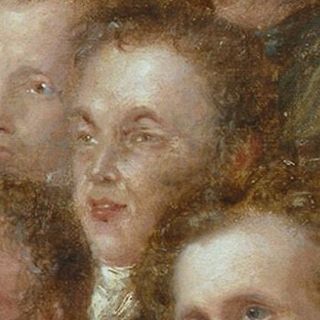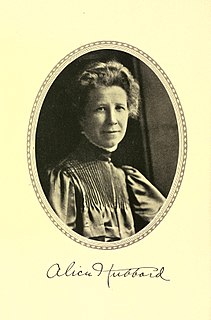A Quote by Gail Sheehy
I found the happiest woman in America is between 50 and 55, is happily married, has made significant progress in her career, and lives in a community where she can easily exercise outside. But the most important single thing was she had her last child before she was 35.
Related Quotes
And she [Eleanor Roosevelt]loves being a star. And she loves being a teacher and a leader and a mentor and a big friend. Also, she's tall. She's one of the tallest girls in the school. And she's an athlete. And she writes many years later, at the end of her life, she writes that the happiest day, the happiest single day of her life was the day that she made the first team at field hockey. And I have to say, as a biographer, that's the most important fact. I
I found her lying on her stomach, her hind legs stretched out straight, and her front feet folded back under her chest. She had laid her head on his grave. I saw the trail where she had dragged herself through the leaves. The way she lay there, I thought she was alive. I called her name. She made no movement. With the last ounce of strength in her body, she had dragged herself to the grave of Old Dan.
One of my aunties inspires me beause of how easily she shows her emotions, and she isn't ever afraid to cry. My mum, for her work ethic - she might not show her emotions in public very much, but she's a total power woman. My grandma, who watched four of her children die before her, she's a powerhouse.
Every woman whether rich or poor, married or single, has a circle of influence within which, according to her character, she is exerting a certain amount of power for good or harm. Every woman, by her virtue or her vice, by her folly or her wisdom, by her levity or her dignity, is adding something to our national elevation or degradation. A community is not likely to be overthrown where woman fulfills her mission, for by the power of her noble heart over the hearts of others, she will raise that community from its ruins and restore it again to prosperity and joy.
At that moment a very good thing was happening to her. Four good things had happened to her, in fact, since she came to Misselthwaite Manor. She had felt as if she had understood a robin and that he had understood her; she had run in the wind until her blood had grown warm; she had been healthily hungry for the first time in her life; and she had found out what it was to be sorry for someone.
Where woman has taken her place in business she has found her method ready-shaped for her, and following that, she does her work,if with a certain amount of monotony, yet without undue fatigue. Her hours are fixed, and as a rule she gets needful change of scene as she goes to her business and returns to her home or the place where she lives. But the "home- maker" has not, nor can she have, any such change, and her hours are always from the rising of the sun beyond the going down of the same.
She had said she didn't feel fear, but it was a lie; this was her fear: being left alone. Because of one thing she was certain, and it was that she could never love, not like that. Trust a stranger with her flesh? The closeness, the quiet. She couldn't imagine it. Breathing someone else's breath as they breathed yours, touching someone, opening for them? The vulnerability of it made her flush. It would mean submission, letting down her guard, and she wouldn't. Ever. Just the thought made her feel small and weak as a child.
And he absolutely had to find her at once to tell her that he adored her, but the large audience before him separated him from the door, and the notes reaching him through a succession of hands said that she was not available; that she was inaugurating a fire; that she had married an american businessman; that she had become a character in a novel; that she was dead.
I get goose-bumps when you talk about Diane Wilson. Who knows where she found that courage? When she was a child, she would crawl under the bed when a stranger came to the house. But in 1989, she found out that her county in south Texas was ranked worst in the country for toxic waste. She wondered if the effluent, dumped into the waters where she and her family had shrimped for generations, might be responsible for the dwindling fish populations. And she suspected that her son's autism might be related to the pollution.
She sat leaning back in her chair, looking ahead, knowing that he was as aware of her as she was of him. She found pleasure in the special self-consciousness it gave her. When she crossed her legs, when she leaned on her arm against the window sill, when she brushed her hair off her forehead - every movement of her body was underscored by a feeling the unadmitted words for which were: Is he seeing it?
For she was a child, throwing bread to the ducks, between her parents who stood by the lake, holding her life in her arms which, as she neared them, grew larger and larger in her arms, until it became a whole life, a complete life, which she put down by them and said, "This is what I have made of it! This!" And what had she made of it? What, indeed?





































